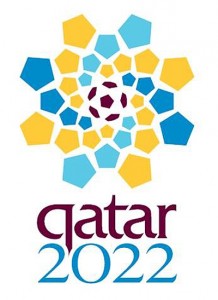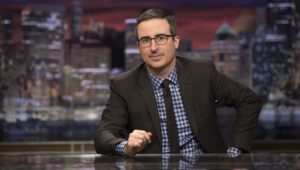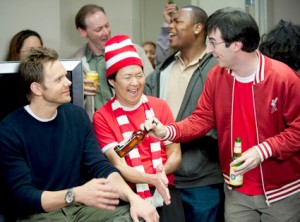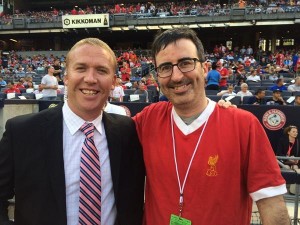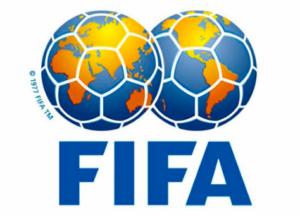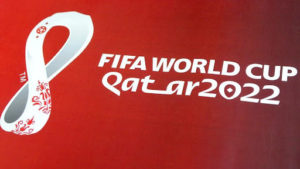While the 2022 Qatar FIFA World Cup continues to roll on, without any major catastrophes, what it took to get here is the most preposterous situation in the entire history of sports. The Qatar World Cup is a classic example of “sportswashing,” which is defined by cyberdefinitions as:
“The Acquisition or Sponsorship of Sports Clubs, Federations, or Events, in Order to Distract From Wrongdoing.”
“The term sportswashing is based on the practice of whitewashing walls or fences with a cheap white paint that covers up dirt and other marks, thereby hiding the unattractive aspects of something and projecting a spotlessly clean image.”
Basically, it’s the practice of:
“hey look at this massive festival of sport we’re hosting. Never mind all the awful things we typically do, and even all the awful things we did to even make this sporting event happen.”
John Oliver focused on the Qatar World Cup, the human rights violations happening in the sporting event’s host country, and what “perfection” really means to David Beckham, in his show’s (Last Week Tonight with John Oliver) season finale.
As Oliver himself says in the segment “any memories of controversy are washed away, once the first ball is kicked,” citing the last World Cup, also staged under a brutal authoritarian regime, in Russia in 2018.
See the entire segment below:
Again sportswashing.
“I won’t say that Qatar definitely got the World Cup through bribery, but I won’t say that they didn’t and I will say that they did,” said Oliver, a Birmingham native and Liverpool super supporter, who admits, despite all the atrocities, will watch the tournament.
Oliver then gave the most perfect description of FIFA possible:
“A cartel-like group of scumbags and assorted criminals who occasionally put on soccer matches.”
The World Cup, until this time, was always in the summer, as it should be. Of course, the game LITERALLY CANNOT BE PLAYED in the Middle East in the summer, where the temps reach 115-120 on average.
That’s how morally depraved FIFA is. Moving it to November and December wreaked havoc on all the club football/soccer leagues. It led to numerous player injuries, and it completely disrupted and destroyed the sports and cultural calendar in America.
Yes, FIFA took a bribe to signed on for this, at an amount that was shockingly small.
Three members who voted for Qatar took $1 million each. Not much money when you consider how Qatar spent $220 million on hosting this event.
Oh, and then there’s that whole 6,500 people (according to a study published in The Guardian) dying during the construction phase of the stadium thing. Not to mention they repress women as second-class citizens and classify homosexuals as criminals.
For more on this, be sure to check out the John Oliver segment on the Qatar World Cup in 2014, when we learned, this was actually going to happen.
Also check out “HBO Real Sports: The Price of Glory in Qatar” (unfortunately, the video for this segment was taken down)
Their investigation reveals how this tiny wealthy country has in recent years conducted an obsessive campaign to achieve glory through sport at seemingly any cost, including human lives.
A bribery scandal has rocked the 2022 Qatar World Cup, with the country accused of buying its way to the winning bid. A closer look at this mysterious Middle Eastern nation suggests the world shouldn’t be surprised.
In an extended segment, a new REAL SPORTS investigation shows how this tiny but fantastically wealthy country has in recent years conducted an obsessive campaign to achieve glory through sport at seemingly any cost, in dollars, ethics, rights and even human lives.
From Lausanne to Bulgaria, Nepal to Doha, David Scott follows Qatar’s international sports money trail, with foreign athletes paid to compete for Qatar telling their stories for the first time. The former head of Qatar’s national track team breaks his silence.
Anonymous third-world men imported to build Qatar’s facilities speak from inside the squalid work camps where they live.
The workers, forced to participate under the kafala (or sponsorship) system, state that they will be allowed to return home only when their job is done, or when the conditions in which they work and live kill them – whichever comes first. Interviews include human rights activist Husain Abdulla.
Paul M. Banks is the Owner/Manager of The Sports Bank and author of “Transatlantic Passage: How the English Premier League Redefined Soccer in America,” as well as “No, I Can’t Get You Free Tickets: Lessons Learned From a Life in the Sports Media Industry.”
He has regularly contributed to WGN News, Sports Illustrated and the Chicago Tribune, and he co-hosts the After Extra Time podcast. Follow him and the website on Twitter and Instagram.
